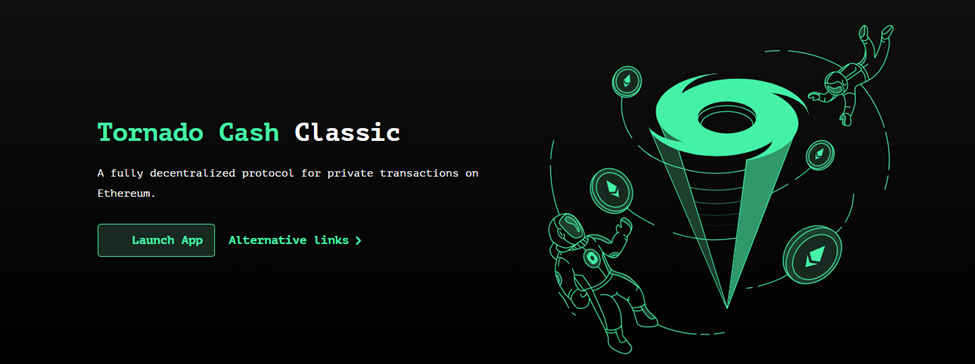
U.S. Treasury Office of Foreign Asset Control (OFAC) has sanctioned the largest Ethereum mixer, Tornado Cash. The implications are not only for US citizens — major financial and infrastructure service providers complied, putting self-sufficient DeFi under the question.
On 08.08.22 U.S. Treasury Office of Foreign Asset Control (OFAC) sanctioned the largest Ethereum mixer, Tornado Cash. The official press release cites money laundering risks and mentions Lazarus Group of DPRK among other malicious cyber actors that use it. Previously, in May 2022, OFAC sanctioned Bitcoin mixer blender.io. A recent Chainalysis report indicates increased transaction volumes on mixers from Russia related groups, so this move could indicate U.S. efforts to prevent evasion of political sanctions.
Cryptocurrency mixers are one of the early services in the crypto world. Due to its quasi-anonymous character, some of the crypto users are interested in privacy services. The general concept of mixers is to combine transfers from many users and to re-route coins between them. Users send coins into the mixer pool, then take equal number of someone else’s coins.
There are custodial and non-custodial types. Non-custodial ones risky and log their transactions, so the trend is for decentralized, non-custodial mixers. Non-custodial, smart contract mixers allow to pool funds and claim them at later stage, further complicating the possibility of tracking.
Tornado Cash Developers Arrested
Tornado Cash is a smart contract mixer developed by Roman Semenov and Roman Storm in 2018. The project has its own coin Torn, that got listed by Binance in 2021 and has been trading since then at around $50. The mixer is the largest on Ethereum network, offering mixing for ETH, DAI, USDC, USDT and WBTC. Only its ETH pool value was floating at around $500 million. The size matters in mixer selection, since it is possible to transfer large amounts without being noticed.

The sanctions on Tornado Cash have had an immediate effect. GitHub has banned the founders and developers associated with the project. Its website and all related resources have become irresponsive. The two main Ethereum node service providers Infura, and Alchemy have also blocked Tornado Cash.
On August 10 Dutch authorities arrested Alexey Pertsev, a Russian national who played a pivotal role in the development of Tornado Cash. He was apprehended on suspicion of "involvement in concealing criminal financial flows and facilitating money laundering through the mixing of cryptocurrencies
Effects Of Sanction on DeFi
An interesting effect is observed with the USDC: Circle has blocked all addresses associated with the Tornado Cash effectively making some USDC worthless. This can have huge consequences on DeFi projects that use USDC in their automated smart contracts. These contracts cannot distinguish between tainted and good USDC.
Nevertheless, technically the sanctions are not fatal. Tornado Cash can switch to their own nodes, the websites can be relocated, probably DeFi will also find its way around centralized stablecoins. This is the situation that was expected and the outcome will decide not only the fate of mixers, but decentralized communities too. We will observe what happens next.
